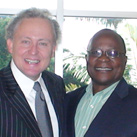The Great Exchange: Philippians Series #8

We read in Philippians 3:1-9:
Finally, my brethren, rejoice in the Lord. To write the same things to you, to me indeed is not grievous, but for you it is safe. Beware of dogs, beware of evil workers, beware of the concision. For we are the circumcision, which worship God in the spirit, and rejoice in Christ Jesus, and have no confidence in the flesh. Though I might also have confidence in the flesh. If any other man thinketh that he have whereof he might trust in the flesh, I more: circumcised the eighth day, of the stock of Israel, of the tribe of Benjamin, an Hebrew of the Hebrews; as touching the law, a Pharisee; concerning zeal, persecuting the church; touching the righteousness which is in the law, blameless.”
“But what things were gain to me, those I counted loss for Christ. Yea doubtless, and I count all things but loss for the excellency of the knowledge of Christ Jesus my Lord: for whom I have suffered the loss of all things, and do count them but dung, that I may win Christ, and be found in him, not having mine own righteousness, which is of the law, but that which is through the faith of Christ, the righteousness which is of God by faith.”
 You will notice, in verses 7 and 8, that Paul is talking about the things that really matter in this life. Many people today—and many of them church people— are spending time and giving energy in things that really don’t count. A thousand years from now, a million years from now, they will make absolutely no difference. I would like to encourage you to check up and see if you’re living a life that really counts.
You will notice, in verses 7 and 8, that Paul is talking about the things that really matter in this life. Many people today—and many of them church people— are spending time and giving energy in things that really don’t count. A thousand years from now, a million years from now, they will make absolutely no difference. I would like to encourage you to check up and see if you’re living a life that really counts.
If it’s a life of legalism, then it’s not a life that counts. The Apostle Paul had lived a life of legalism, and he had enough of it. The Lord Jesus Christ met him there, on the Damascus Road and saved him, transformed him. Now, he is going to fight legalism with every ounce and every inch, for the rest of his life.
And so, therefore, the first three verses begin with a warning. The Apostle Paul says, in verse 2: “Beware of dogs.” You’ve seen that sign before, haven’t you? “Beware of dogs.” “Beware of dogs,” and then, he says, “Beware of evil workers.” And then, he says, “Beware of the concision” (Philippians 3:2).
What’s he talking about? Who are these dogs? He’s talking about the legalists—the Judaizers. Those who were coming along, after Paul would preach the gospel, and they’d say, “Well, you’re not just saved by believing in Jesus. You’ve got to keep the Law of Moses. You’ve got to go through certain rituals. You’ve got to go through certain ceremonies.” And, Paul said, “Beware of dogs.”
Now, that’s awfully strong language. The word here doesn’t mean, “a little house pet.” He’s talking about those cruel, vicious, snapping, snarling, barking, biting, and filthy alley dogs. And, he says, “You watch for dogs.” That’s the way he characterized false religious teachers.
Paul is saying that some of the meanest people in the world are in the world of religion. And, Paul says, “Beware.” Don’t you think just because a person is religious, he’s nice. You will find more meanness in the world of religion than perhaps anywhere else. It was a religious crowd that crucified Jesus.
Now, there are some people who may act very religious, but they’re extremely cruel and ferocious. Paul says: “Beware of dogs, beware of evil workers, beware of the concision” (Philippians 3:2). This word concision means, “the mutilators.” He’s making a play on the word circumcision. They were the ones who were always preaching circumcision. He calls them mutilators. He is saying that this legalism can save no one.
You can be as religious as you want, but if you’re not born again, then you’re not a Christian. You must be born again. Religion without Jesus Christ is a terrible thing. Religion cannot save anyone. The Apostle Paul was very religious, but he had just enough religion to keep him out of trouble. But, he didn’t have enough righteousness to get him into Heaven. Religion without righteousness is repugnant to God.
Sometimes it is harder to reach a religious person for Jesus than it is an out-and-out sinner. That’s the reason why Jesus Christ, when He looked at the Pharisees, who were the religionists and said, “I want to tell you something. The harlots and the publicans are going to Heaven before you. Why? At least they knew that they were sinners” (Matthew 21:31–32).
Do you know what most of the people in America are? They are egomaniacs, strutting their way to Hell, thinking that they’re too good to be damned. They don’t understand that they must be born again. You know, they’re such nice folks. I’m just saying that self-righteousness is a very deceptive thing. Paul here is warning against self-righteousness. He is showing that religion cannot save. He’s showing that legalism cannot save. He’s showing that ritual cannot save.
In our passage, Paul begins to open the books. He opened the book on his own life. He looked at his life before Christ, and he saw that he was bankrupt in spite of all of his religion. And then, he found the Lord Jesus Christ, and he took stock again, and found out that he was immensely wealthy.
I. The Old Math Of Life
 He says in verse 4, “Though I might also have confidence in the flesh.” When he’s talking about confidence in the flesh, he’s talking about those things that people depend upon to earn human merit or achievement for their salvation.
He says in verse 4, “Though I might also have confidence in the flesh.” When he’s talking about confidence in the flesh, he’s talking about those things that people depend upon to earn human merit or achievement for their salvation.
Paul was dealing with those who were bragging about how good they were. Paul says, “If you want to get into a bragging contest, then I’ll get into one with you. You think that you’ve got something to boast about. I’ve got more to boast about than any of you.” Then, Paul goes on to tell about the things that he could boast about in the flesh.
A. Our Rituals
Paul says, “Circumcised the eighth day” (Philippians 3:5). Why, he had all the ritual performed on him, and it began with his circumcision when he’s only just a little eight-day-old baby boy. Paul is articulating, “I’ve had the rituals. I know all about this.”
There are a lot of people who believe just being a good person is enough for eternal life. There are others who like to talk about how they were baptized as a child or sprinkled. They really do believe a little water is enough to save them. Baptism, whether a spoonful or a tank-full, can’t take you to Heaven.
B. Our Relationships
Not only did he have ritual, he also had the pride of relationship. He says again: “Circumcised the eighth day, of the stock of Israel” (Philippians 3:5). His family tree was respectable. He was from the Jewish aristocrats. Yet, the Apostle Paul came to find something that I trust you’ll come to find: that God has no grandchildren—only children. And, your mom and dad may be right with God, but that won’t make you right with God.
C. Our Respectability
Paul was a man who had not only pride of ritual and a pride of relationship, but had pride of respectability. He goes on to say, here in verse 5, “of the tribe of Benjamin” (Philippians 3:5). Oh, what a great tribe was Benjamin. When the other tribes had gone astray—not Benjamin. Israel’s first king came from the tribe of Benjamin.
In the Old Testament there is a passage that says that in the tribe of Benjamin there were 700 left-handed warriors. The Bible says that they could throw a stone at a hare and not miss. They were the elite; they were the special troops of the children of Israel. The battle cry of the children of Israel was, “After thee, O Benjamin.”
Yet, Paul is saying this: “Oh, listen: I don’t care how respectable you’re held. You may be in high respect, but you’re just as lost as the bootlegger, if you’ve not been brought to the Lord Jesus Christ.”
D. Our Race
 Furthermore , Paul had the pride of race. Notice again, in verse 5, he says, “I was a Hebrew of the Hebrews.’” That is, “I’m as pure as you can get. No Gentile blood mingled in my family, no sir. We didn’t take on the ways of the Greeks. No Hellenist is in our family. We’re just pure. We kept all of the rituals. I am a Hebrew of the Hebrews.” He had pride of race, but he found out that it’s not race—it’s grace—that gets a man to Heaven.
Furthermore , Paul had the pride of race. Notice again, in verse 5, he says, “I was a Hebrew of the Hebrews.’” That is, “I’m as pure as you can get. No Gentile blood mingled in my family, no sir. We didn’t take on the ways of the Greeks. No Hellenist is in our family. We’re just pure. We kept all of the rituals. I am a Hebrew of the Hebrews.” He had pride of race, but he found out that it’s not race—it’s grace—that gets a man to Heaven.
E. Our Religion
Paul is not finished yet. He says, “Now, if you want to brag, then I could brag.” He had pride in religion. In verse 5—he says, “as touching the law, a Pharisee.” Who were the Pharisees? These were the strictest sect—the most orthodox. When one talks about religion, about morality, or about belonging to the right church, Paul did. He was intensely orthodox. He had zeal and defended his religion. He persecuted the church, because he was standing up for his religion. There were approximately 6,000 Pharisees in the first century.
F. Our Reputation
Next, there was the pride of reputation. In verse 6—and he says: “touching the righteousness which is in the law, blameless.” Had you followed the Apostle Paul, you would have said, “My, what a good man!” He wasn’t sinless and he knew he was not. But, he’s saying, “I am blameless—not sinless in the eyes of God, but blameless in the eyes of men.” No one could have pointed a finger at the Apostle Paul and said, “He’s a thief”; or “He’s a liar”; or “He’s a pervert”; or “He’s an adulterer.”
He continues and says in verse 6, “Concerning zeal, persecuting the church.” Paul is saying, “I had the proper sincerity. I was zealous.” Zeal was considered to be one of the finest characteristics of religious life. Was there anyone ever more zealous than Paul? Read the record of the Apostle Paul before he came to know Christ as his Savior. Talk about somebody zealous. Paul was so zealous that he would kill anybody that disagreed with him.
We could conclude, “If religion could get a man to Heaven, then religion certainly would have gotten the Apostle Paul to Heaven.” Yet, Paul says: “When I took all of this—all of the accoutrements, all of this wealth, it was zero.” In verse 7, we read, “But what things were gain to me, those I counted loss for Christ” (Philippians 3:7). He said, “All of this was a total loss.” Good works do not save; they cannot save.
I heard about a man who had recently filled out his income tax, and he tried to deduct his wife’s beauty parlor treatments. And the IRS agent said, “You can’t do that.” He said, “Why not? It was a total loss.”
For Paul, everything was a total loss. “The things that I counted as gain were loss. They didn’t do one thing to make me godlier, or to bring me to the Lord Jesus Christ. It’s amazing that people think that you’re saved by good works—by self-righteousness. These people are the hardest people to reach because they’re satisfied—they’re good people.
You say, “Preacher, I’m a moral person. I live a good life.” I talk to many people about their relationship to Christ and one of the first things they say to me is, “I live a good life. I’m a good man. I’m a good father to my children.” That’s great. “I’m a great husband to my wife.” That’s wonderful. But did you know that you could be morally good in terms of the outward keeping of the commandments of God? There may be nothing that anyone can accuse you of, nothing for which they can put blame upon you, and yet, you are still not saved.
II. The New Math With The Lord
 Paul states in verse 7, “But what things were gain to me,” all in the credit column, “those I counted loss for Christ.” Something happened here to Paul. Something took place which changed Paul’s method of mathematics.
Paul states in verse 7, “But what things were gain to me,” all in the credit column, “those I counted loss for Christ.” Something happened here to Paul. Something took place which changed Paul’s method of mathematics.
We read, “Yea doubtless, and I count all things but loss for the excellency of the knowledge of Christ Jesus my Lord: for whom I have suffered the loss of all things, and do count them but dung”—that is, refuse, garbage—“that I may gain Christ, and be found in him, not having mine own righteousness, which is of the law, but that which is through the faith of Christ, the righteousness which is of God by faith” (Philippians 3:8–9).
One day, Paul was on the road to Damascus. He was on his way to persecute believers in the Lord Jesus Christ. He had the official papers in his hand giving him the right to persecute believers, and something happened to Paul on that Damascus Road that completely changed his method of calculation. Suddenly, everything he had placed in the credit column, he discovered that every bit of that was over in the debit column.
It’s just like the stars disappearing before the sun. It’s like pasting pearls alongside real diamonds. Everything he had bragged about and counted upon as his spiritual wealth, waking up one day, he discovers that all of it is worthless.
Previously, he valued his race, his religion, his self- righteousness, and so much more. These were not bad, in and of themselves. He was not ashamed that he was a Hebrew. He was grateful that he was a Roman citizen. But, what Paul is saying is that even a good thing is a bad thing if it becomes a substitute for the best thing.
What was it that changed his mathematics? Paul was on the road to Damascus. He was a religious man. He was a zealous man, a sincere man. Yet, Paul says, “Those things that I counted gain, all of a sudden I counted them loss.” He put them in the loss column.
Here’s what happened. When Paul was on the road to Damascus, he was holding on to all of these things he was counting on to earn and to merit salvation by human achievement, and he was confronted by the living Lord Jesus Christ. He thought Jesus was dead. When they had put Jesus on the Cross of Calvary, he thought that was the end of the matter.
He was probably in the jeering section at the cross, and he was so glad when they put Him in the tomb and sealed the entrance to the tomb. Yet, suddenly on the Damascus Road, he made the startling discovery that Jesus Christ was not dead, but that Jesus Christ is alive. Everything Paul had depended upon to save him and to earn and merit his salvation, turned up in the loss column.
Suppose you are a camper, and you have a backpack, and you put your canteen, spoon, fork, snacks, and blanket in it. You now board a plane to fly to the place where you are going camping. While you are in the airplane, it starts to go down. And rather than grabbing a parachute, you grab your backpack and jump out. There is nothing wrong with a backpack. You need a parachute but have chosen a backpack. And if you grab a backpack rather than a parachute, the point is that that backpack and your life are a total loss.
Paul said, “I count all these things but loss.” He wasn’t saying that they were bad in and of themselves. However, the worst form of badness may be human goodness when that human goodness becomes a substitute for the new birth. Paul had that human goodness. He said, “You want to brag? I’ll brag right along with you. I’ve got the pedigree: I’m a blueblood; I’m a religionist.” Yet, “I count all of these things but loss, that I might gain Christ.”
A. Our Burden For Christ
 Think about what it cost Paul to come to Christ. It cost him financial stability. I have reason to believe that Paul was quite a well-to-do man, or certainly his family was wealthy, because he was able to travel all the way from Tarsus to Jerusalem to study under Gamaliel, one of the greatest teachers of the day. Yet, when he came to the Lord Jesus Christ, he became an itinerant preacher who had to fix tents as a moonlighter, as a second job, in order to preach the Gospel of Jesus.
Think about what it cost Paul to come to Christ. It cost him financial stability. I have reason to believe that Paul was quite a well-to-do man, or certainly his family was wealthy, because he was able to travel all the way from Tarsus to Jerusalem to study under Gamaliel, one of the greatest teachers of the day. Yet, when he came to the Lord Jesus Christ, he became an itinerant preacher who had to fix tents as a moonlighter, as a second job, in order to preach the Gospel of Jesus.
I think about all of the fitness challenges that he went through to come to Christ. Read 2 Corinthians 11, and you will see all that Paul went through physically in order to serve the Lord Jesus Christ. He was stoned three times, beaten with rods, shipwrecked, and the list goes on.
I think about what it cost Paul in terms of his family. Have you ever noticed that Paul never mentions his family? So far as I can tell, there is no mention of his family in terms of a personal relationship. Do you know why? I believe that when Paul gave his life to the Lord Jesus Christ he was disinherited by his family. He lost all those personal relationships.
The worst thing with some people is that they don’t realize that they’re lost. Many of them are religious. Many of them belong to good churches. Many of them give their money. Many of them have been baptized. Yet, they have their name on the church roll, but they don’t have their name in the Lamb’s Book of Life.
It is hard to let go of our sins, on the one hand. It is also hard to let go of our righteousness, on the other hand and say, “Lord, I don’t have anything to offer to you. Now, what he meant is this: Jesus said: “For whosoever will save his life shall lose it; but whosoever shall lose his life for my sake and the gospel’s, the same shall save it” (Mark 8:35). That’s what Paul meant when he said, “I count all these things but loss.” Not only am I willing to turn from my sin, but I am willing to turn from my righteousness, which is in the sight of God as filthy rags. Paul said: “if righteousness comes by the law, then Christ is dead in vain” (Galatians 2:21).
B. Our Benefits With Christ
1. The Knowledge of Christ
What did Paul gain? So far, we have written about the old math of life. Now, we will learn about the new math with the Lord. Paul writes, “Yea doubtless, and I count all things but loss for the excellency of the knowledge of Christ” (Philippians 3:8). The very first thing that he gained as new wealth was the knowledge of Christ. Not knowledge about Christ—the knowledge of Christ: to know Him, to have fellowship with the Lord Jesus Christ.
2. The Fellowship of Christ
In verse 9, Paul says: “And be found in him…” (Philippians 3:9). Now, that’s a safe place to be, isn’t it? You see, it’s not that I’m just a church member; I am in Christ. I am in His body, and He is in me. You talk about fellowship—never alone again. You may be alone but never lonely, because the Lord Jesus Christ is in you, and you are in the Lord Jesus Christ, if you know Him.
Paul exchanged a set of rules for a friend. Wouldn’t you rather have a friend than a set of rules? Before this, he had the law. Now, he has the Lord!
3. Righteousness Through Christ
 To be “in Christ,” for Paul means, it is worth more than all of the religion, and all of the Phariseeism, and all of my culture, and all of his race, and all of my ritual. It is Jesus—not only knowledge of Jesus, and not only the fellowship with Jesus, but righteousness through Jesus.
To be “in Christ,” for Paul means, it is worth more than all of the religion, and all of the Phariseeism, and all of my culture, and all of his race, and all of my ritual. It is Jesus—not only knowledge of Jesus, and not only the fellowship with Jesus, but righteousness through Jesus.
Notice how Paul writes, “And be found in him, not having mine own righteousness, which is of the law, but that which is through the faith of Christ, the righteousness which is of God by faith” (Philippians 3:9). Paul is tired of trying. He is going to start trusting. I am tired of trying to work my way to Heaven. Legalism is a terrible thing. What a taskmaster legalism is for people.
Paul said, “I don’t have this self-righteousness anymore—this works of righteousness; now, I have God’s righteousness, which is imputed to me.” Do you know what the word impute means? Paul wrote in the Book of Romans, “But to him that worketh not, but believeth on him that justifieth the ungodly, his faith is counted for righteousness” (Romans 4:5).
Paul has been doing some accounting for his life. “His faith is counted for righteousness. Even as David also describes the blessedness of the man, unto whom God imputed righteousness without works” (Romans 4:5–6). The word imputed means, “to put on your account.”
When I believe in the Lord Jesus Christ, apart from my works, apart from my baptism, apart from my church membership, apart from trying to keep the Ten Commandments and the Golden Rule, and come to the Lord Jesus Christ, and say, “I believe on the Lord Jesus Christ”—that moment, God makes me righteous. He just writes down righteousness to my account. What a wonderful miracle! That’s glorious, that righteousness is imputed to us.
A housekeeper, who worked for a man that was cruel and mean, finally got saved. After she was saved, she was so happy. He hated her happiness in Christ. He tried to ridicule and belittle her. Finally, he said unto her, “Betty, you say you’re saved. You tell me: how does it feel to be saved?” She said, “Well, I don’t believe that I can explain it, to where you can understand it. However, it feels as though I am standing in Jesus’ shoes, and He is standing in mine.” A theologian couldn’t have said it better.
When God looks down on you (if you are born again) or me, God sees us as righteous as Jesus Christ— not because of my righteousness. You may say, “Who do you think you are?” A Christian— that’s who I think I am. Not me—“not having mine own righteousness, which is of the law, but that which is through the faith of Christ” (Philippians 3:9). The righteousness that is imputed—glory to God—that’s what Christianity is all about.
When we see the bankruptcy of the old man, not just our sinful things, but also our good things; we lay them all aside so that we might gain Christ. Christ is not a prize at the end of the race. He’s a gift so you can run the race.
Salvation is not easy, free, or cheap. Jesus Christ died in agony and in blood, so that you might have it. On the one hand is your self-righteousness, your legalism, and your trying to be saved. On the other hand, is the righteousness of God, which is by faith in the Lord Jesus Christ and based on His shed blood. Now, which do you choose?
Let’s just suppose that you own about 10 acres of a garbage dump out in the country. Suppose someone comes along and says, “I’ve got 10 square miles up in New York City. I will exchange your 10 acres of garbage dump for 10 square miles in New York City.” Would that be a pretty good deal? Would you be willing to make that kind of swap?
Paul is saying to do the math. Paul is saying that if you will come to the Lord Jesus Christ, He will exchange all of that spiritual garbage you have been depending upon to get you to heaven, for the unsearchable riches of Jesus Christ and what He did on the cross for you.
If you choose this world and what it has to offer, you have everything to lose and nothing to gain. If you choose Jesus and what He did on the cross for you, you have everything to gain and nothing to lose. It’s just a matter of doing the math.
Back To Blog




